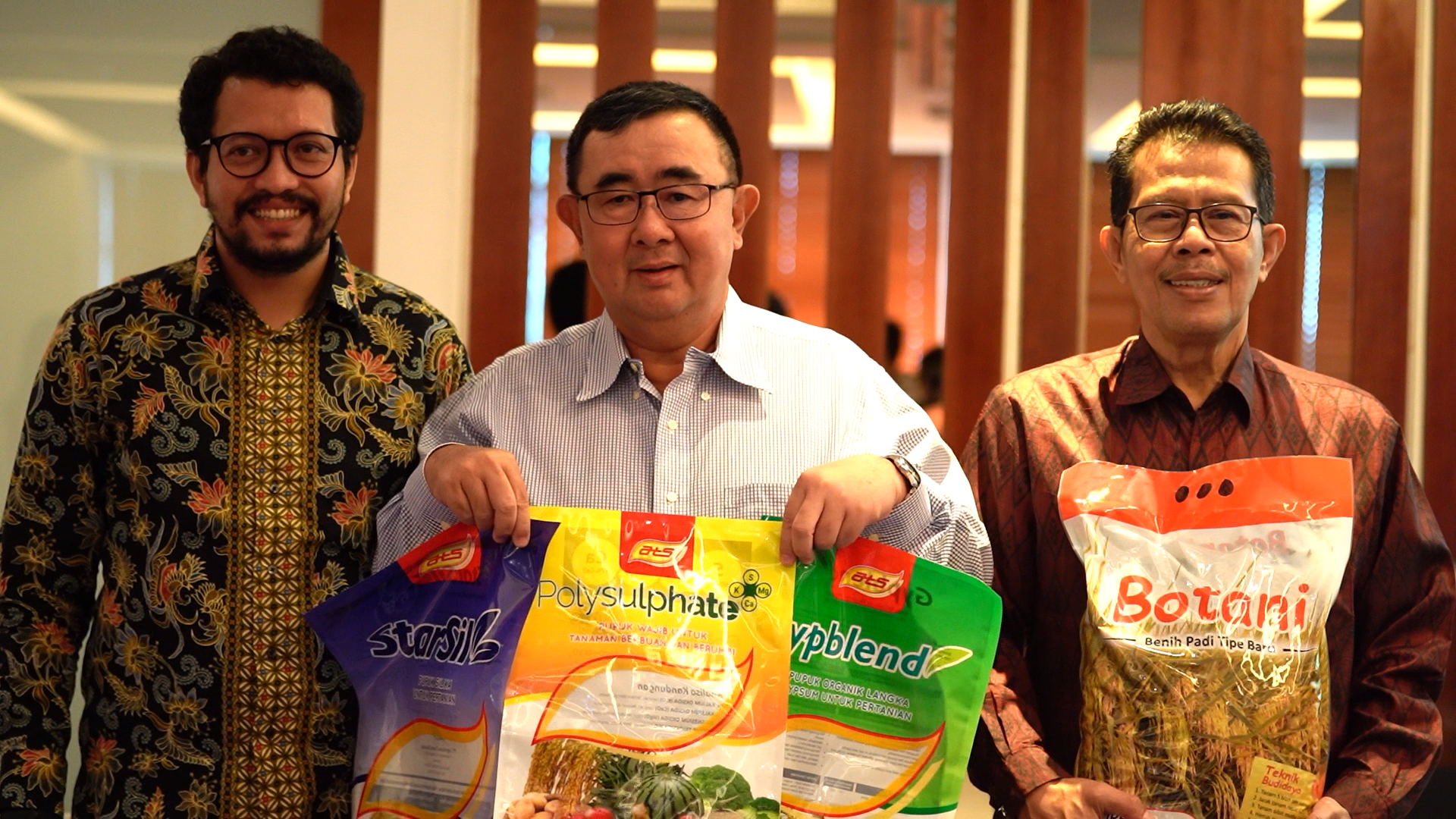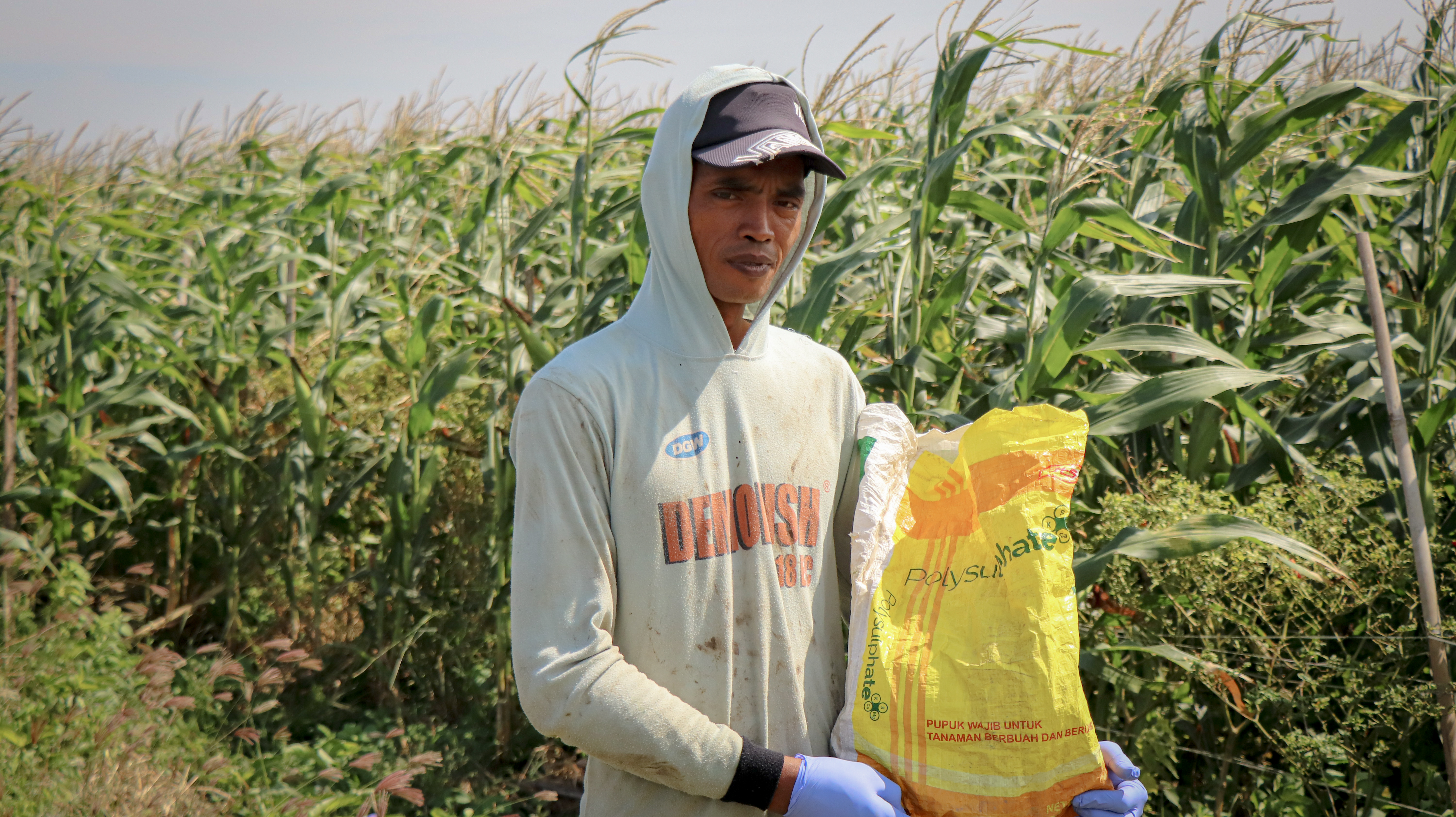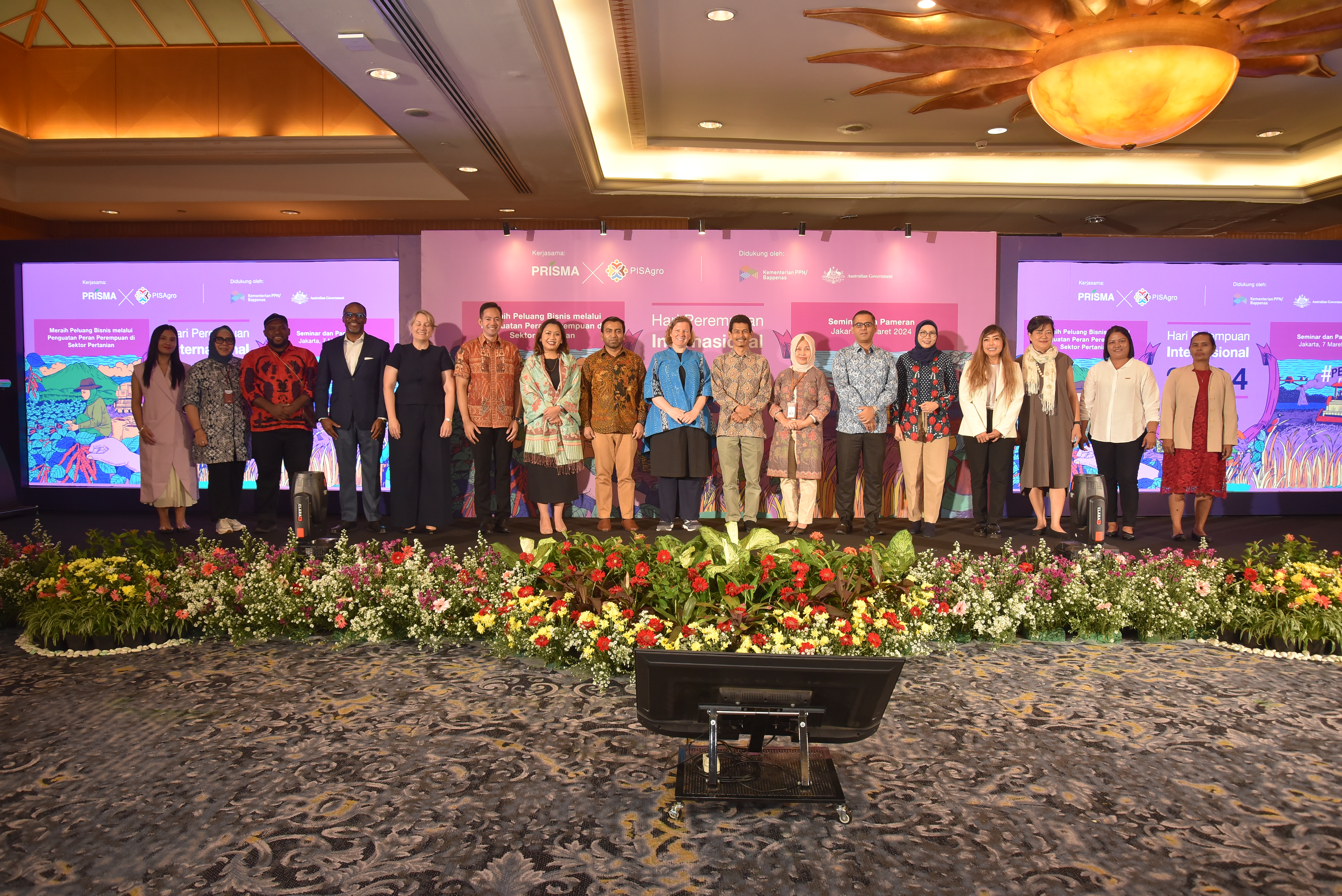Climate change risks rice productivity, which could harm the nation’s food security. A 1°C temperature rise could lead to an 11.1 percent decline in yields for irrigated paddy fields and an even more pronounced 14.4 percent reduction for rainfed paddy fields nationwide. One way to address this challenge is by promoting climate-smart agriculture practices.
Common climate-smart agriculture approaches include improving irrigation efficiency to reduce water wastage, applying more balanced fertilisers to reduce emissions, and using crop protection strategies to increase yields. However, adopting high-yielding variety seeds in rice cultivation affects all other aspects of its cultivation. High-yielding seeds require less fertiliser and less water and have higher yields.
Despite the benefits of high-yielding varieties, rice farmers in Indonesia continue to rely on traditional, low-yielding rice seed varieties. These varieties are often drought-susceptible, prone to pest attacks, and have lower yields. This results in higher emissions per tonne of rice produced, assuming the same amount of nitrogen-based fertiliser is used.
Based on PRISMA’s five years of experience working in the rice sector, farmers' inefficiency stems from a limited supply of high-yielding varieties and significant gaps in perception and information regarding their benefits.















